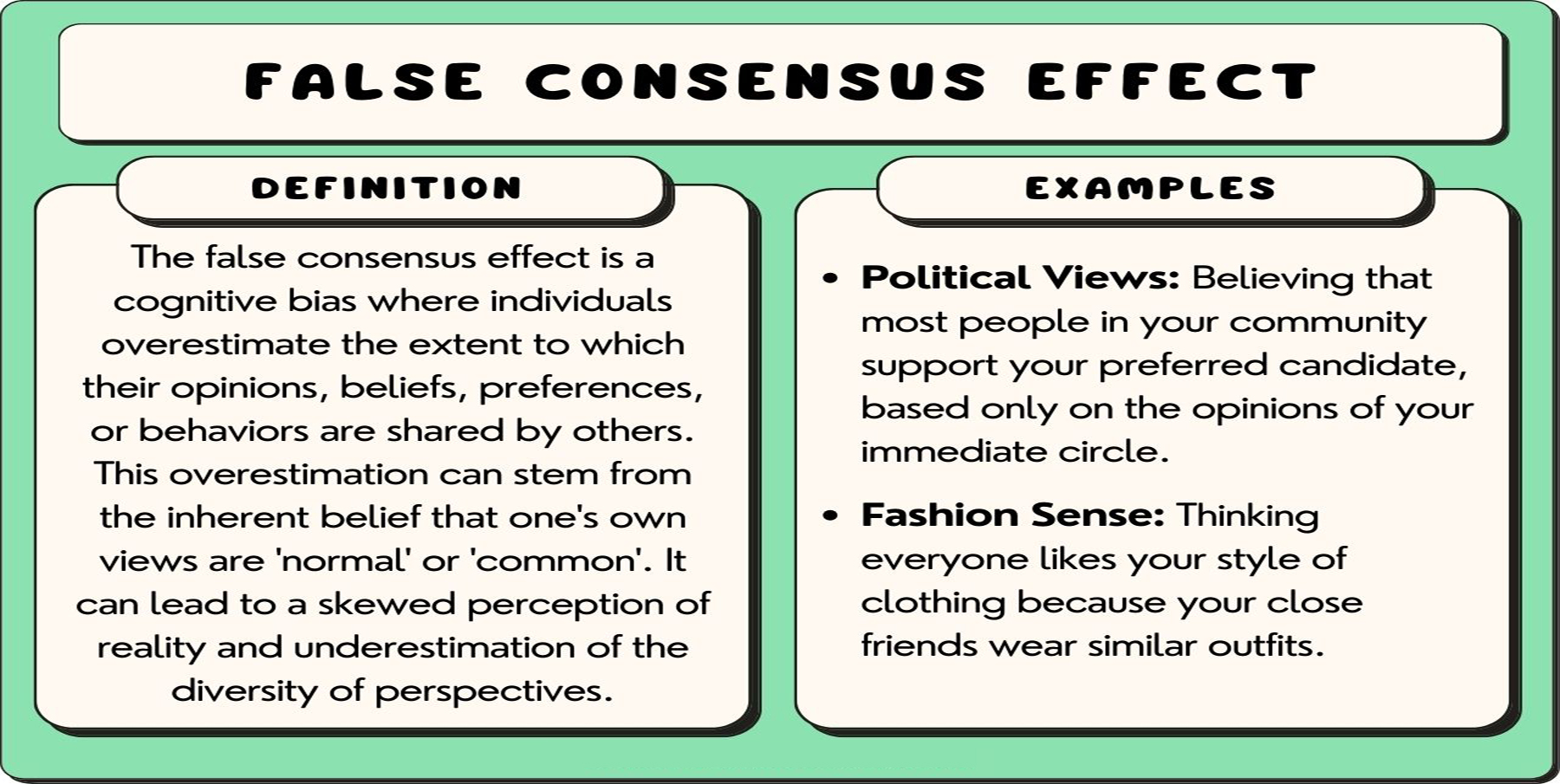The false consensus effect is a cognitive bias that leads individuals to overestimate the extent to which their beliefs, values, opinions, and behaviors are shared by others. In other words, people tend to assume that their own perspectives and actions are more common or typical than they actually are, and they may expect others to think and behave similarly.
Explanations:
The false consensus effect arises from a combination of factors, including egocentrism (the tendency to focus on one’s own experiences) and the assumption that our own viewpoints are normative.
Examples:
Dietary Choices: Someone who is a vegetarian may assume that most people share their dietary choices, leading them to believe that vegetarianism is more common than it actually is.
Political Beliefs: A person with strong political views might assume that their political party’s stance is widely accepted and that most people share their views.
Lifestyle Preferences: Individuals may believe that their lifestyle choices, such as hobbies, values, or spending habits, are more prevalent among the general population.
Solutions:
Seek Diverse Perspectives: Actively engage with people from different backgrounds and with varying viewpoints to gain a broader understanding of societal diversity.
Question Assumptions: Challenge your own assumptions about what is “normal” or common. Encourage self-awareness and an open-minded approach.
Be Empathetic: Put yourself in others’ shoes and consider their experiences and perspectives. This can help you recognize that people have different beliefs and behaviors.
Recognize Cultural and Regional Differences: Understand that what is considered typical can vary significantly based on cultural, regional, and societal factors.
By addressing the false consensus effect, individuals can become more aware of their own biases and engage in more open and empathetic communication with others, regardless of differences in beliefs or behavior.
